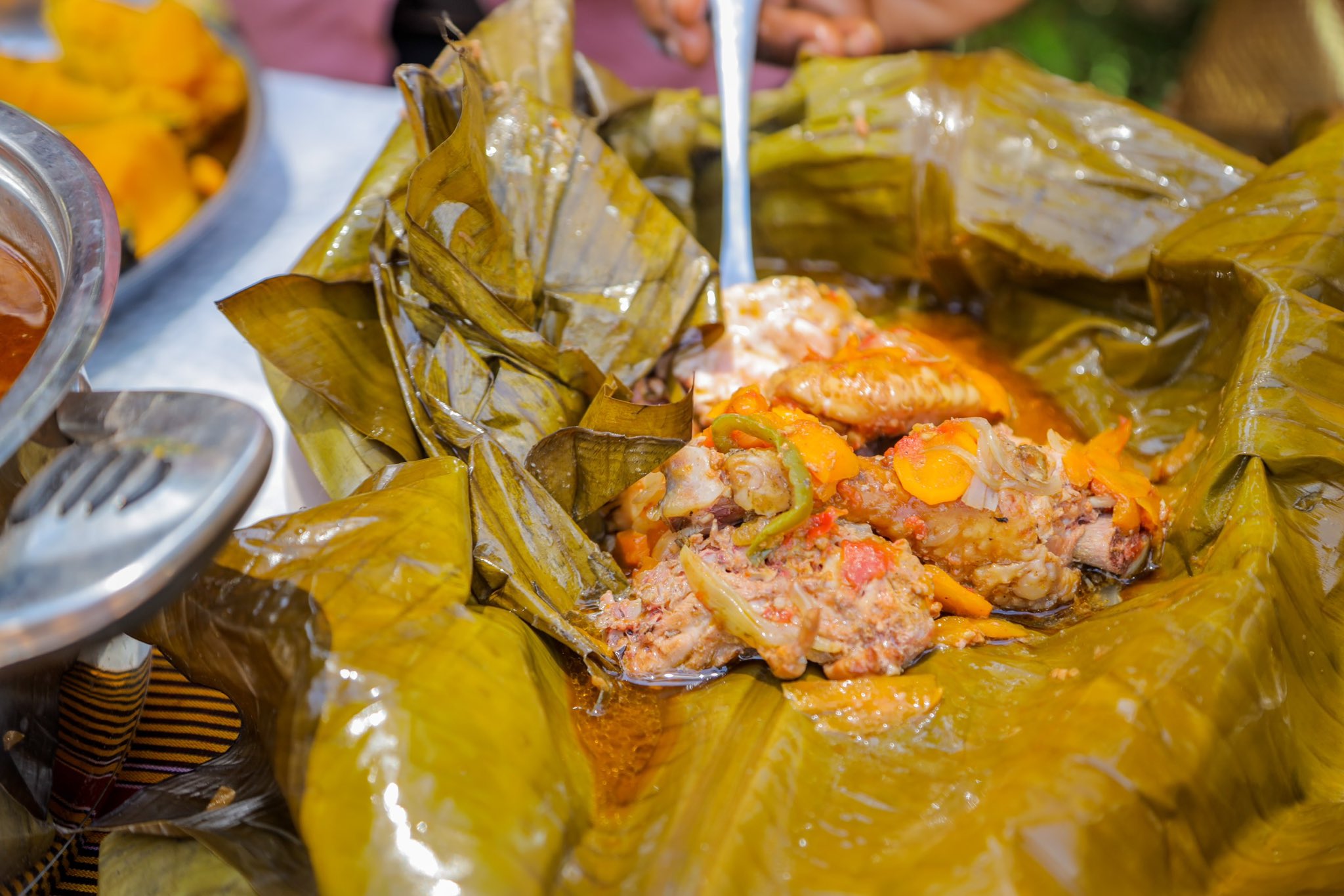
Why Luwombo deserves much more attention
Luwombo (or oluwombo) is a traditional Ugandan dish, particularly associated with the Baganda people. The dish is believed to have been created in the late 19th century during the reign of Kabaka (King) Mwanga II of Buganda. According to oral tradition, Luwombo was invented by one of the royal chefs, who wrapped meat in banana leaves and steamed it. The dish was so well-received by the Kabaka that it became a staple in royal cuisine.
The preparation of Luwombo involves marinating meat (such as chicken, beef, or goat), fish, or vegetables with spices, and then wrapping the ingredients in banana leaves. The wrapped food is then steamed slowly, allowing the flavours to mix and the food to cook tenderly. This method of cooking gives Luwombo its distinctive taste and aroma.
Luwombo is often served during special occasions, such as weddings, cultural ceremonies, and festive gatherings. It is traditionally eaten with staples such as matooke (steamed mashed bananas), rice, or posho. The dish remains a significant part of Ugandan culinary heritage and is celebrated for its unique cooking technique and cultural significance. Here is why it should be revered:
Nutritional value
Steaming in banana leaves is a healthy cooking method, as it requires minimal oil and helps to preserve the nutrients in the food. The dish is often rich in proteins, vitamins, and minerals, depending on the ingredients used.
Culinary artistry
The presentation of Luwombo is an art in itself. The food is beautifully encased in banana leaves, creating a visually appealing and aromatic package. This presentation makes it a unique and memorable dining experience.
The combination of local spices, herbs, and the natural aroma of banana leaves creates a complex and rich flavour profile that is both comforting and exotic.
Underrated in global cuisine
Despite its rich flavour and cultural significance, Luwombo is relatively unknown outside of Uganda. It has the potential to be a standout dish in international cuisine, especially in restaurants and culinary festivals that celebrate traditional and authentic foods.
Highlighting Luwombo could boost culinary tourism in Uganda, attracting food enthusiasts interested in experiencing unique and traditional dishes.
Cultural preservation:
As globalization influences food habits worldwide, promoting dishes such as Luwombo is crucial for preserving culinary traditions and passing them on to future generations. Increased attention to Luwombo can also lead to greater awareness and appreciation of Uganda’s diverse and rich culinary heritage.
Given these factors, Luwombo deserves much more recognition both within and beyond Uganda for its cultural significance, unique preparation method, and potential as a global culinary gem.











